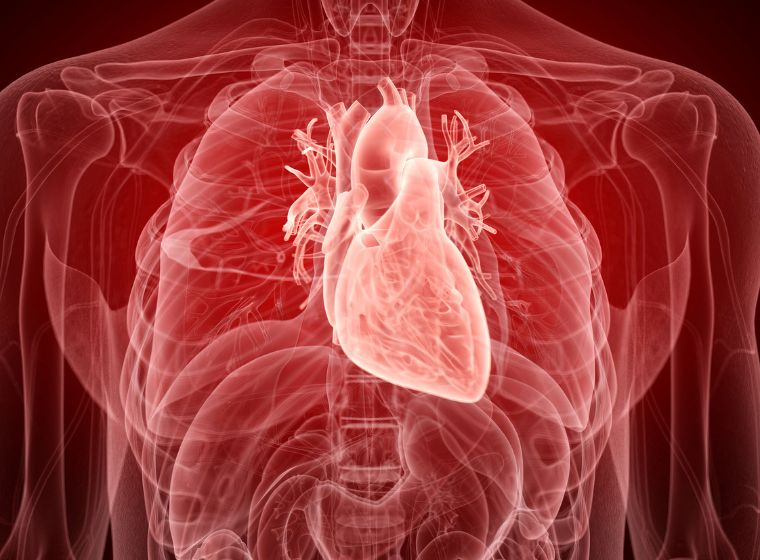
What Heart Conditions Require a Pacemaker?
The human heart relies on an electrical system to maintain a steady rhythm. When this system malfunctions, the heart may beat too slowly, too fast, or irregularly. A tiny medical device called a pacemaker helps control cardiac rhythm and makes sure the heart pumps blood effectively. For people with certain heart conditions, Pacemaker Surgery can be life-changing, improving symptoms and preventing complications. In this article, we’ll explore the heart conditions that may require a pacemaker and what to expect from the procedure.
How Does a Pacemaker Work?
A pacemaker is a tiny, battery-powered gadget that is inserted beneath the skin, usually near the collarbone. It has thin wires (leads) connected to the heart, which send electrical impulses when the heart beats too slowly or irregularly. The goal is to maintain a steady heart rhythm, reducing symptoms like dizziness, fatigue, and shortness of breath. Some advanced pacemakers can also adjust the heart rate depending on a person’s activity level.
Common Heart Conditions That Require a Pacemaker
Several heart conditions may require Pacemaker Surgery to correct irregular heart rhythms. Let’s look at some of the most common ones:
1. Bradycardia (Slow Heart Rate)
Bradycardia is the result of an excessively slow heartbeat, usually less than 60 bpm. This can lead to tiredness, dizziness, fainting, and confusion. A pacemaker helps by sending electrical impulses to maintain a normal heart rate.
2. Heart Block
Heart block occurs when electrical signals between the upper and lower chambers of the heart are delayed or blocked. Depending on the severity (first-degree, second-degree, or third-degree heart block), a pacemaker may be necessary to ensure proper signal transmission and maintain a steady heartbeat.
3. Sick Sinus Syndrome
This condition happens when the sinoatrial (SA) node, the heart’s natural pacemaker, doesn’t function properly. It may result in the heart beating too slowly, pause between beats, or alternate between slow and fast rhythms. A pacemaker helps regulate the heart’s rhythm and prevent symptoms like dizziness and fainting.
4. Atrial Fibrillation with Slow Ventricular Response
Atrial fibrillation (AFib)is an abnormal and regularly fast heartbeat. In some cases, the lower chambers of the heart (ventricles) respond too slowly, leading to an insufficient blood supply to the body. Pacemakers can help ensure the heart beats at an adequate rate.
5. Congenital Heart Block
Some people are born with a heart conduction problem that prevents proper electrical signal transmission. In these cases, a pacemaker can help regulate the heart’s rhythm from an early stage in life.
6. Heart Failure (Cardiac Resynchronization Therapy - CRT)
In certain heart failure cases, the heart’s chambers do not pump in sync, leading to inefficient blood circulation. In Cardiac Resynchronization Therapy (CRT), a specific pacemaker called a biventricular pacemaker is utilized to enhance heart function and alleviate symptoms including exhaustion and breathlessness.
Signs You May Need a Pacemaker
Not all heart rhythm issues require a pacemaker, but certain symptoms may indicate a need for Pacemaker Surgery:
- Frequent dizziness or lightheadedness
- Fainting or near-fainting spells
- Unexplained fatigue
- Shortness of breath, especially during activity
- Persistent chest discomfort
- If you experience these symptoms, consult a cardiologist for an evaluation.
Diagnosis: How Do Doctors Decide If You Need a Pacemaker?
Doctors use several tests to determine if a pacemaker is necessary:
- Electrocardiogram (ECG) – evaluates the heart's electrical activity.
- Holter Monitor – Records heart activity over 24-48 hours.
- Stress Test – Evaluates how the heart functions under physical activity.
- Echocardiogram – Uses ultrasound to check heart structure and function.
Pacemaker Surgery: What to Expect
Pacemaker Surgery is a relatively simple and safe procedure. Here’s what happens:
- The doctor makes a small incision near the collarbone.
- Leads (thin wires) are guided into the heart through a vein.
- The leads are attached to the pacemaker, which is positioned beneath the skin.
- Prior to the incision being closed, the device is examined to make sure it is operating properly.
- The procedure typically takes a couple of hours, and most patients go home within 24 hours. Recovery is quick, but some precautions, such as avoiding heavy lifting for a few weeks, are necessary.
Cost of Pacemaker Surgery in Turkey
Turkey is a leading destination for affordable, high-quality medical treatments like pacemaker surgery. Istanbul Med Assist helps streamline the process, offering personalized support for international patients. With world-class facilities, experienced professionals, and comprehensive care packages, Turkey ensures top-tier treatment without the long waits or high costs of Western countries.
Life After Pacemaker Surgery
Living with a pacemaker is generally hassle-free, but a few lifestyle adjustments are needed:
- Routine follow-ups to assess the pacemaker's effectiveness.
- Avoiding strong electromagnetic fields (such as MRI machines) unless your device is MRI-compatible.
- Carrying a pacemaker identification card in case of emergencies.
Most people resume normal activities quickly and enjoy a better quality of life. Pacemaker Surgery can provide peace of mind and significantly improve heart health.
Conclusion
A pacemaker is a vital solution for many heart rhythm disorders. Whether it’s bradycardia, heart block, or heart failure, this device helps restore a normal heart rhythm and prevents serious complications. If you or a loved one experiences symptoms like dizziness, fainting, or extreme fatigue, consulting a cardiologist is essential. Thanks to advancements in medical technology, Pacemaker Surgery is now a routine and highly effective procedure that can help people lead healthy, active lives.
Pacemaker For Heart Price Turkey



